- Home
- Неизвестный
8 Great Hebrew Short Novels Page 2
8 Great Hebrew Short Novels Read online
Page 2
Requiring more patience, and more careful scrutiny, is In the Prime of Her Life, written by the dean of Hebrew letters, S.Y. Agnon (1888–1970). Winner of the Nobel Prize for literature in 1966, Agnon wrote for more than half a century, beginning in 1908. His work is the most difficult to render into English, largely because of the massive ironies and biblical associations of the original Hebrew, and is at least as much a challenge to the translator as to the reader. The first translation into English by Gabriel Levin, himself a poet and the son of the late novelist Meyer Levin, seems to us to be itself a literary triumph, and it has here been superbly revised for this reprint by Levin, who revisited his original translation of 1983. Certainly the reader will do well to read this novella more than once before pronouncing judgment, especially since a first reading will be devoted to unraveling the plot and the shifting point of view, difficulties of the surface not unlike those encountered in the texts of James or Joyce. Though Edmund Wilson, when he learned Hebrew, came to appreciate Agnon, he unfortunately admired the wrong Agnon, praising the folksy and religious writer rather than the ironic, sophisticated artist. Calling Agnon folksy is akin to labeling Picasso a naif and letting it go at that, mistaking the one part for the complex whole. In his endless stream of stories and novels, Agnon tricked and seduced, appearing to do one thing when in fact he was doing something quite different. Like Nabokov, he had a fondness for teasing critics and tweaking pedants, leading them on a wild-goose chase with a playful and mischievous will. Wearing a yarmulke and citing the Torah, he presented himself as a man of religious orthodoxy; his work, however, offers a much broader perspective, brimming with worldly knowledge and a rich secular appetite. In truth Agnon was a cunning actor, assuming this persona or that mask, all the time fully conscious of his audience, his stage, his designs and effects.
In the Prime of Her Life, composed in 1921, is narrated mainly by the young daughter who, upon the death of her mother, proceeds to fulfill her mother’s deepest wish—namely, to devote herself to her first lover, whom she never married but about whom she remained passionate. Thus begins a deeply ironic tale, the daughter reliving her mother’s life and kindling passion in both herself and the former lover (who should have been her father), at the same time that her actual father, still on the scene, looks on. The music of Agnon flows slowly, with statement and repetition of theme, and then counterpoint, something like a fugue, with the ironies and multiple meanings emerging more and more upon each reading. Stylistically, too, there is a deliberate irony in the contrast between the refined, cool style of the narrator and the highly charged emotions of the drama, a tension balanced beautifully by Agnon. In the delicacy of the relationships and the nuances of sensibility, we are in the subtle world of Proust; in the verbal music of the prose, with its controlled lyrical breaks, the atmosphere is Joycean. Admittedly, however, for the reader to experience Agnon in this rarefied air, he has to work hard. And even then, in English we miss the rich associations with biblical cadences and references, available in the Hebrew only. Perhaps more than any other major novelist, Agnon loses significantly in translation, a painful and ironic fate for Hebrew’s greatest writer.
A final word about this master. Like any major creator of the imaginary, Agnon always knew what was real for him—those sources which nurtured his talent. These included the home of his childhood and youth, the Polish region of Galicia, and the home of his adulthood, Jerusalem and Eretz Yisrael, where he came to settle in 1909, at the age of twenty-one. Until his death in 1970, he remained in Israel, with the exception of one long break, 1913–1924, when he returned to Europe. Another source was the whole of Jewish tradition—the Bible, the Talmud, and Hasidic literature, a treasury of materials that was at his fingertips in the way that the Bible and classical literature were available to Milton. Finally there were the Jews themselves and their nightmarish history, especially in this century. In great part Agnon’s subject was nothing less than the end of the Jews and Jewish life in Europe, and it may be said that his work is the most moving history we have of a time and a people. He foresaw with remarkable prescience the enormous tragedy in his best novel, A Guest for a Night, one of the great novels of twentieth-century literature. All the more ironic then that that novel remains largely unread in its pale English translation, and, like the body of Agnon’s work, remains unknown to most Western readers.
The work of David Fogel (1891–1944) presents a sharp contrast to that of the previous writers and is a clear bridge to contemporary literature. Fogel lived only a brief time in Palestine, 1909, before returning to Europe, his beloved continent that tortured him all his life. A Russian exile with an un-Jewish temperament, Fogel nonetheless had a painfully Jewish life; he was incarcerated first as an enemy national by the Austrians after World War i, was next held by the French in a detention camp for the same reason during World War ii, and finally disappeared for good in a Nazi concentration camp in 1944. All this time he sought to escape his Jewishness, and even as he wrote in Hebrew, he paradoxically wanted to live as a cosmopolitan in Vienna and Paris. Known mainly for his excellent poetry, Fogel wrote three pieces of prose, two novellas (the other being In the Sanatorium), and a long novel, Married Life. It is the story of a pathological love affair between a Jewish intellectual and a sadistic German baroness, set in Vienna between the wars. It carries serious psychological and literary interest. Married, sick with tuberculosis, Fogel lived a fractured life, keeping a diary in Yiddish, writing literature in Hebrew, speaking French, German, Italian, and Russian. His was a secret, painful, bizarre life.
Facing the Sea is the first prose work available to the English reader, and the occasional awkwardness of the translation arises from the awkwardness of the original Hebrew, a kind of Germanized Hebrew with many archaisms almost unknown to the reader of modern Hebrew. Despite the occasional linguistic difficulty, however, Facing the Sea will undoubtedly surprise today’s reader, for its world of rich sensousness is a very modern one indeed. It is also a strongly felt and masterfully executed piece of work. Fogel’s world is sensual rather than narrowly sexual, embracing objects of nature as well as people, suggesting inward feeling by strokes of landscape. Staged in a seaside resort on the Riviera, Facing the Sea is about a group of Europeans between the wars who come together for a holiday that is intended as a celebration of the physical, yet depart a flock of fatigued, disappointed souls. It is a kind of Lost Generation fable, expressed exquisitely through the sensibility of a poet. In fact it should be read more as an impressionist poem—stirring the senses and bypassing logic for feeling—than as a conventional tale using a plot with a beginning, middle, and end, with exposition and flashback to fill the reader in. The movement is poetical, proceeding by means of associations and imagery, an apparent random field flung down that, slowly, accumulates and attracts with stunning force. The quality of the sensuality is also appealing, for it is a flower blooming for its own sake, and not, as in many an American garden, for some ulterior puritanical purpose. The sensuality and poetry are part of a complicated moral vision, a vision conveyed without self-righteousness or tendentious motive, a vision beyond that imagined by moralists or hedonists. Facing the Sea belongs best perhaps with the early films of Fellini or Antonioni, where spiritual exhaustion and decadence hover about all physical pleasure, where beauty and sadness are indissolubly linked.
Of the three living writers in our collection, Amos Oz needs the least introduction to an Anglo-American audience. A member of a kibbutz since his early teens, an articulate representative of the first Sabra, or native-born Israeli generation, Oz was the first contemporary Israeli writer to earn an international reputation through his stories and novels, a reputation enlarged by public lectures abroad and outspoken dovish politics at home. In his homeland, too, he enjoyed great early success, and for good reason: his works are rooted in the rich life of the young state and frequently deal with and reveal a piece of that hot, convulsive history. His most famous work is probably the novel My Michael, yet in o
ur estimation, Oz has accomplished his best work in the stricter form of the novella. In Unto Death, for example, he shows a fertile historical imagination in the spare moral allegory of a band of medieval Crusaders pillaging their way across twelfth-century Palestine. And in Late Love, he has created a first-rate parable of Jewish paranoia after the Holocaust. Intensity being one of Oz’s fortes, the novella seems the fitting form for governing his energy and dramatizing his intelligent themes.
The choice here, The Hill of Evil Counsel, published in 1976, displays Oz’s fondness for history, here realistically conveyed. Set in the British Mandate years of the 1940s, the story allows the author to recall his own childhood in Jerusalem and weave autobiography with fiction. This background is sketched with fidelity and skill, evoking the tense atmosphere of British occupation and Jewish underground activity. Oz’s selection of the young Hillel as the protagonist for surveying the material of the story is shrewd, for it permits the background of external intrigue—the underground working against the British—to be set off with considerable irony against the boy’s personal struggle, a conflict of feelings as the child is torn between his romantic Polish mother and his rational German father. Oz shows a superior talent in manipulating the public intrigues and private defeats without losing either proportion or emotion. All told, the work shows a sense of underlying structure that is organic, arising from the story and not imposed from without. History is experienced here as a living force pressing on human lives, charging the family tale with an extra dimension of meaning.
Yehoshua Kenaz, another writer who will be familiar to readers of Hebrew in English translation, was born in 1937. Kenaz is a quiet figure, living modestly in Tel Aviv, for many years working as an editor of Haaretz (the New York Times of Israel) and a translator of French classics into Hebrew. The author of several novels, he has also published a collection of novellas, the title story being our Musical Moment (1980), the second story in this collection to have been revisited by the original translator some twenty years on. Betsy Rosenberg’s rending is a “musical moment” in itself. Here, too, the choice of a young boy for narrator is crucial to the story’s success, and Kenaz handles this outworn voice with tonal delicacy and mature understanding. The boy plays a dual role, that of hero and witness: a critic of the bourgeois society surrounding him, and an actor in his own drama of self-development. Kenaz avoids the familiar trap of sentimentality inherent in such stories about little boys with their violins and dominating mothers; at every turn in the story, he takes a deliberately anti-sentimental road. Two points stand out. One occurs when he reads an article on the violin, but not the sort one might expect in such a story:
I suppose one ought to consider the excellence of such famous instruments as the Ira Stradivarius played by virtuosi…but as for the cheap variety in the hands of pupils—a harmonica would be preferable! In the latter case of violin we have to bear with a mournful scream, a sniveling plea for mercy that is enough to induce a severe case of melancholia.
Yes, melancholia. The nightmare of the Jewish Ghetto screams out of these fiddles. The Diaspora Jew practically venerated the violin. It was his sine qua non, Yidel mit’n fidel. In every Jewish household, the beloved son, whether he was gifted musically or a complete imbecile, had to “saw away” on his violin, for the pleasure of his mother, who found her greatest fulfillment in the violin. Come what may, the violin prevailed. Trials and tribulations, every kind of care and woe, debts, installments, bill collectors—and the violin!
This is enough to convince the boy of the rightness of his own feelings, and he decides, with derisive pleasure, to repay the violin and his mother for all the trouble they have caused him. Indeed, it is the mother who becomes the archenemy of her son, and who provokes in him the will to leap from boyhood to manhood. For beneath the surface of the story line there is the deeper inner story of this rite of passage, this wrenching of innocence. In looking at objects of Jewish sentiment with a detached eye of critical realism, Kenaz aligns himself with another cool surveyor of Jewish family life, Isaac Babel. Like Babel, Kenaz catalogues and excoriates the little bourgeois world of the hero’s European family with pitiless honesty, even as he approaches the inevitable wounds of the young man with painful preciseness. In part because he sacrifices neither judgment nor sympathy, Kenaz achieves a purity of tone and depth of feeling that affect the reader with Babel-like resonance. Much like Schubert’s sonata “Musical Moment,” the violin piece which haunts the hero, so the story itself becomes a musical moment, staying and expanding in the reader’s mind long after the last page has been read; and if this story does resonate long after the reader has come to the end of it, it is in no small part due to the enormous sensitivity of Rosenberg’s translation.
A.B. Yehoshua was born in 1936 in Jerusalem, where he grew up and was educated, and after serving in the army, he lived for four years in Paris before returning to an academic career in Haifa. In that serene city overlooking the sea, he taught literature at the university for many years. But Yehoshua’s stories and short novels are anything but serene or academic in theme, style, or effect. His vision and his methods, in novellas such as Three Days and a Child, Facing the Forest, Flood Tide, Summer of 1970, A Long Hot Day, His Despair, His Wife and His Daughter, and The Continuing Silence of a Poet, are wholly original. Both by themselves and taken together, they constitute a serious achievement, perhaps the outstanding achievement in the genre of the novella of any writer today. Though Yehoshua switched to novels, with many outstanding books and several in English translation by Hillel Halkin, among them Mr. Mani, it seems that the shorter form suits this author’s talent perfectly, as evidenced by his string of powerful successes.
Composed in 1964, The Continuing Silence of a Poet is not merely an excellent example of his splendid talent in this difficult form, but it is also, as Saul Bellow has noted, one of the best literary tales of the last twenty-five years. Like the arresting novella Teach Us to Outgrow Our Madness by the Japanese writer Oé, The Continuing Silence of a Poet deals with a father-son relationship where the troubled son forces a profound disturbance and challenge upon the father, in this case an aging poet who has grown arid and silent in recent years. This challenge jolts the father’s conventional feelings and reasonable expectations. But like Oé, Yehoshua is after more than the challenge to his characters; he also probes and provokes the reader, and his conventions and expectations. For in the last analysis, it is up to the reader to raise himself to the puzzling meanings of the tale, to figure out and fill in and create for himself the emotions with which to break through into this harrowing, inexplicable world.
Yehoshua arranges his world, moreover, by means of a style fitting his material—that is, by systematically avoiding traditional forms of realism or antirealism. By careful fits and starts, by pauses in paragraphs and incompletions of thought, by emphasized silences and long distances between intention and deed, the story lurches forward, sideways, backward. From meaning to incoherence to surprised feeling. In tone and angle, sentences and gestures, the difficult, unique atmosphere is assembled, established, like Pollack dripping blobs of paint here and there to force the viewer to see anew. The arresting style is a kind of anti-stream-of-consciousness, where psychology is evidenced through situation and gesture, not contemplation. Like Beckett in his plays, Yehoshua is a master of gesture and tone, a creator of an atmosphere conveying old age, dying, fatigue, hopelessness, despair, with startling authenticity. To our mind no other living prose writer has drawn the anatomy of despair and solitude as effectively as this accomplished Israeli.
Never once during this radical performance is there a break in credibility, so controlled is the tempo and tone of the tale. This is all the more a feat if we consider the challenge to the writer himself—to resist precedent and welcome uncertainty. To be against certainty and predictability seems, in fact, a positive credo here; against certainties of plot or character, and predictabilities of meaning and feeling, the accepted comforts of the read
er. And yet for all of this authorial resistance to convention, The Continuing Silence of a Poet concerns this familiar relationship of father and son and elicits from it new feeling and powerful emotion—more than one would think possible from so unconventional a telling. In pursuing his original way of voicing our contemporary situation, Yehoshua is not, like so many today, a literary con man or pop artist using clever techniques or ingenious gimmicks for essentially uninteresting purposes. He is not aiming to dazzle us with gymnastics of style or ego, or tease us with secrets that do not ultimately exist; but his work is that of a mature artist trying to break through to deeper circles of feeling, to meanings beyond the cerebral or stale, to a style that approximates his enigmatic, moving vision. Yehoshua is the genuine article, a writer in full control of his marvelous gift.
These eight short novels, in sum, add up to an achievement high enough, as we have suggested earlier, to place the Hebrew novella on a par with the novella of other literatures. It is rather surprising, if not astonishing, to note that the level of imaginative Hebrew prose is already so high, given that Hebrew as a resurrected language is less than a century old. This achievement is perhaps all the more impressive if we consider the relatively modest number of great short novels existing in other, older literatures, such as French, German, Italian, English, and American. Especially so, since the literary art of storytelling, with one obvious, colossal exception, has not been a strength of Jewish culture through the ages (unlike Hebrew poetry, which has a noble history). That exception, of course, is the Bible, the source of many great stories and varied literary styles, which serves as the permanent portable library of the Jews, in all their wanderings and exiles. Thus the present accomplishment is, in a way, further testimony to T.S. Eliot’s thesis about the powers of tradition—in this case, ancient culture and modern European letters—that are necessary for nurturing the individual talent.

 The Bolivian Diary
The Bolivian Diary Caffeine Blues_ Wake Up to the Hidden Dangers of America's #1 Drug ( PDFDrive )
Caffeine Blues_ Wake Up to the Hidden Dangers of America's #1 Drug ( PDFDrive ) The Empty House
The Empty House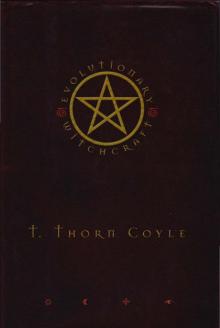 T Thorn Coyle Evolutionary Witchcraft (pdf)
T Thorn Coyle Evolutionary Witchcraft (pdf)![K J Emrick & Kathryn De Winter - [Moonlight Bay Psychic Mystery 01-06] - A Friend in; on the Rocks; Feature Presentation; Manor of; by Chocolate Cake; A-Maze-Ing Death (retail) (epub) Read online](http://freenovelread.comhttps://picture.efrem.net/img/nienyi/k_j_emrick_and_kathryn_de_winter_-_moonlight_bay_psychic_of_by_chocolate_cake_a-maze-ing_death_retail_epub_preview.jpg) K J Emrick & Kathryn De Winter - [Moonlight Bay Psychic Mystery 01-06] - A Friend in; on the Rocks; Feature Presentation; Manor of; by Chocolate Cake; A-Maze-Ing Death (retail) (epub)
K J Emrick & Kathryn De Winter - [Moonlight Bay Psychic Mystery 01-06] - A Friend in; on the Rocks; Feature Presentation; Manor of; by Chocolate Cake; A-Maze-Ing Death (retail) (epub) Next Day of the Condor
Next Day of the Condor Onyx
Onyx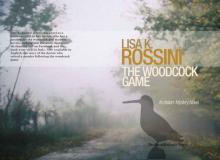 The Woodcock Game: An Italian Mystery Novel
The Woodcock Game: An Italian Mystery Novel Granta 122: Betrayal (Granta: The Magazine of New Writing)
Granta 122: Betrayal (Granta: The Magazine of New Writing)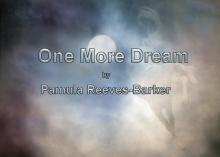 One More Dream
One More Dream Cosa Nostra by Emma Nichols) 16656409 (z-lib.org) (1)-compressed
Cosa Nostra by Emma Nichols) 16656409 (z-lib.org) (1)-compressed Cowboy by J. M. Snyder
Cowboy by J. M. Snyder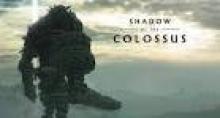 Colossus
Colossus Star Trek - DS9 011 - Devil In The Sky
Star Trek - DS9 011 - Devil In The Sky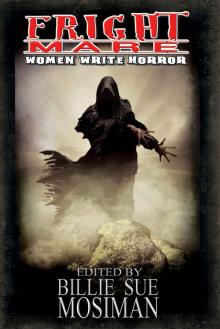 Fright Mare-Women Write Horror
Fright Mare-Women Write Horror The Future Is Japanese
The Future Is Japanese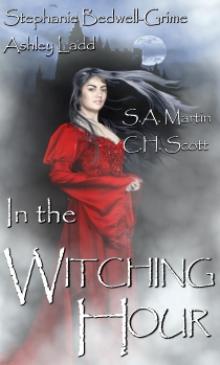 In the Witching Hour
In the Witching Hour Mammoth Books presents Wang's Carpets
Mammoth Books presents Wang's Carpets The Cradle King: The Life of James VI and I, the First Monarch of a United Great Britain
The Cradle King: The Life of James VI and I, the First Monarch of a United Great Britain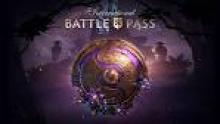 Stalking Moon
Stalking Moon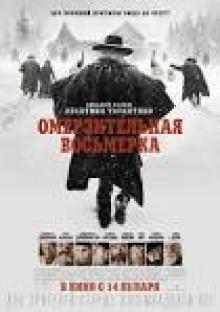 Hostage To The Devil
Hostage To The Devil![Harris, Daisy - Mere Passion [Ocean Shifters 2] (Siren Publishing Classic) Read online](http://i1.bookreadfree.com/i/03/23/harris_daisy_-_mere_passion_ocean_shifters_2_siren_publishing_classic_preview.jpg) Harris, Daisy - Mere Passion [Ocean Shifters 2] (Siren Publishing Classic)
Harris, Daisy - Mere Passion [Ocean Shifters 2] (Siren Publishing Classic) Day, Sunny - Hot in Space (Siren Publishing Ménage and More)
Day, Sunny - Hot in Space (Siren Publishing Ménage and More) Five Books Of The Lives, Heroic Deeds And Sayings Of Gargantua And His Son Pantagruel
Five Books Of The Lives, Heroic Deeds And Sayings Of Gargantua And His Son Pantagruel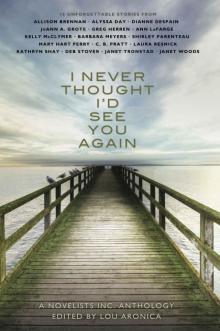 I Never Thought I'd See You Again: A Novelists Inc. Anthology
I Never Thought I'd See You Again: A Novelists Inc. Anthology Billion dollar baby bargain.txt
Billion dollar baby bargain.txt![Chenery, Marisa - Turquoise Eye of Horus [Egyptian Shifters 1] (Siren Publishing Classic) Read online](http://i1.bookreadfree.com/i1/03/26/chenery_marisa_-_turquoise_eye_of_horus_egyptian_shifters_1_siren_publishing_classic_preview.jpg) Chenery, Marisa - Turquoise Eye of Horus [Egyptian Shifters 1] (Siren Publishing Classic)
Chenery, Marisa - Turquoise Eye of Horus [Egyptian Shifters 1] (Siren Publishing Classic)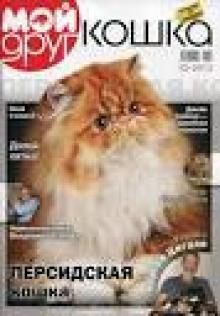 Cat Magic
Cat Magic Star Trek - DS9 - Warped
Star Trek - DS9 - Warped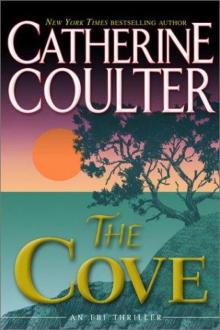 Catherine Coulter - FBI 1 The Cove
Catherine Coulter - FBI 1 The Cove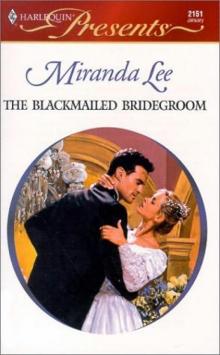 Miranda Lee -The Blackmailed Bridegroom
Miranda Lee -The Blackmailed Bridegroom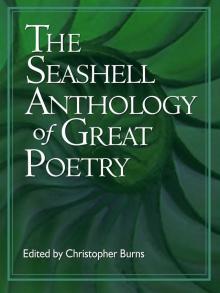 The Seashell Anthology of Great Poetry
The Seashell Anthology of Great Poetry Dragon Moon
Dragon Moon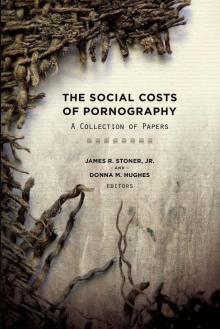 The Social Costs of Pornography: A Collection of Papers
The Social Costs of Pornography: A Collection of Papers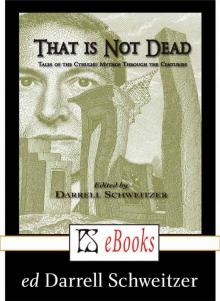 That Is Not Dead
That Is Not Dead Best New Horror: Volume 25 (Mammoth Book of Best New Horror)
Best New Horror: Volume 25 (Mammoth Book of Best New Horror) This Christmas by J. M. Snyder
This Christmas by J. M. Snyder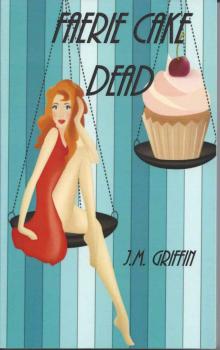 Faerie Cake Dead
Faerie Cake Dead CS-Dante's Twins
CS-Dante's Twins EFD1: Starship Goodwords (EFD Anthology Series from Carrick Publishing)
EFD1: Starship Goodwords (EFD Anthology Series from Carrick Publishing)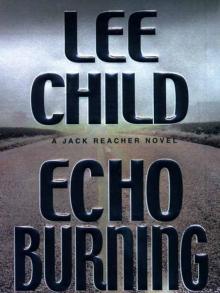 Echo Burning by Lee Child
Echo Burning by Lee Child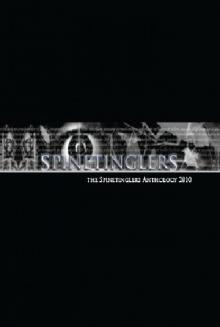 The Spinetinglers Anthology 2010
The Spinetinglers Anthology 2010 Wild Hearts
Wild Hearts Violet Winspear - Sinner ...
Violet Winspear - Sinner ...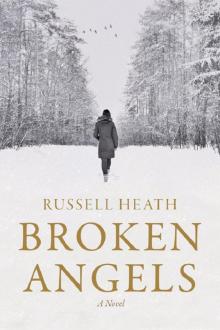 Broken Angels
Broken Angels FearNoEvil
FearNoEvil![Santiago, Lara - Range War Bride [Tasty Treats 11] (Siren Publishing PolyAmour) Read online](http://i1.bookreadfree.com/i1/03/30/santiago_lara_-_range_war_bride_tasty_treats_11_siren_publishing_polyamour_preview.jpg) Santiago, Lara - Range War Bride [Tasty Treats 11] (Siren Publishing PolyAmour)
Santiago, Lara - Range War Bride [Tasty Treats 11] (Siren Publishing PolyAmour) 8 Great Hebrew Short Novels
8 Great Hebrew Short Novels This Is How You Die: Stories of the Inscrutable, Infallible, Inescapable Machine of Death
This Is How You Die: Stories of the Inscrutable, Infallible, Inescapable Machine of Death The Steampowered Globe
The Steampowered Globe While We Wait by J. M. Snyder
While We Wait by J. M. Snyder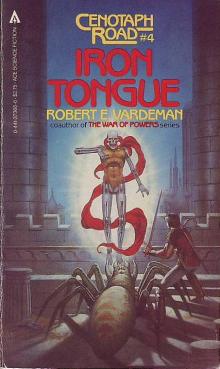 Iron Tongue cr-4
Iron Tongue cr-4![Stieg Larsson [Millennium 02] The Girl Who Played with Fire v5.0 (LIT) Read online](http://i1.bookreadfree.com/i1/03/31/stieg_larsson_millennium_02_the_girl_who_played_with_fire_v5_0_lit_preview.jpg) Stieg Larsson [Millennium 02] The Girl Who Played with Fire v5.0 (LIT)
Stieg Larsson [Millennium 02] The Girl Who Played with Fire v5.0 (LIT)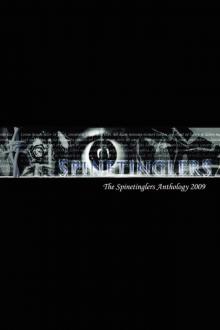 The Spinetinglers Anthology 2009
The Spinetinglers Anthology 2009 Bowles, Jan - Branded by the Texas Rancher (Siren Publishing Classic)
Bowles, Jan - Branded by the Texas Rancher (Siren Publishing Classic) Brown, Berengaria - Vivienne's Vacation (Siren Publishing Ménage and More)
Brown, Berengaria - Vivienne's Vacation (Siren Publishing Ménage and More)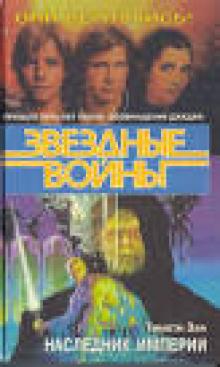 Inheritors
Inheritors Arthur Conan Doyle: A Life in Letters
Arthur Conan Doyle: A Life in Letters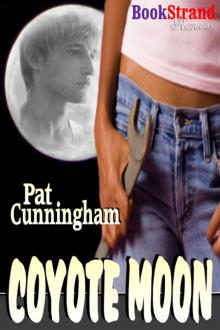 Cunningham, Pat - Coyote Moon (BookStrand Publishing Romance)
Cunningham, Pat - Coyote Moon (BookStrand Publishing Romance)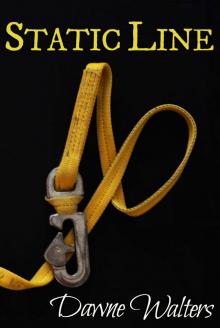 Static Line
Static Line Ghost Mysteries & Sassy Witches (Cozy Mystery Multi-Novel Anthology)
Ghost Mysteries & Sassy Witches (Cozy Mystery Multi-Novel Anthology) Elizabeth Neff Walker - Puppy Love
Elizabeth Neff Walker - Puppy Love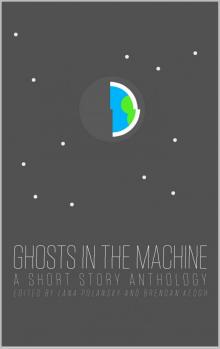 Ghosts in the Machine
Ghosts in the Machine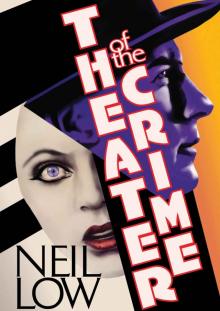 Theater of the Crime (Alan Stewart and Vera Deward Murder Mysteries Book 6)
Theater of the Crime (Alan Stewart and Vera Deward Murder Mysteries Book 6)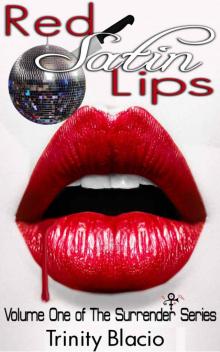 Red Satin Lips, Book One (The Surrender Series)
Red Satin Lips, Book One (The Surrender Series)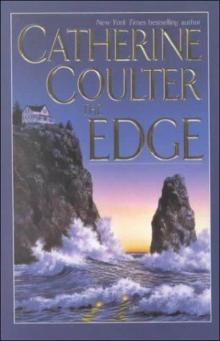 Catherine Coulter - FBI 4 The Edge
Catherine Coulter - FBI 4 The Edge StateoftheUnion
StateoftheUnion Fantastic Women: 18 Tales of the Surreal and the Sublime from Tin House
Fantastic Women: 18 Tales of the Surreal and the Sublime from Tin House Sara Wood-Expectant Mistress original
Sara Wood-Expectant Mistress original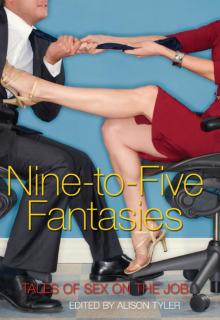 Nine-to-Five Fantasies: Tales of Sex on the Job
Nine-to-Five Fantasies: Tales of Sex on the Job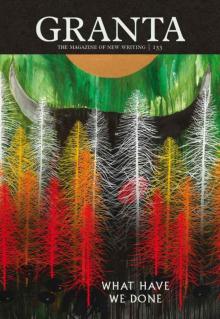 Granta 133
Granta 133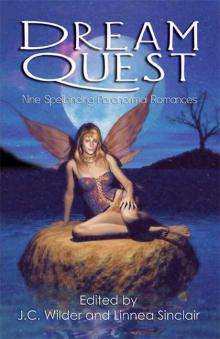 Dream Quest
Dream Quest The Warlock in Spite of Himself wisoh-2
The Warlock in Spite of Himself wisoh-2 Glenn, Stormy - Mating Heat (Siren Publishing Ménage Amour)
Glenn, Stormy - Mating Heat (Siren Publishing Ménage Amour) Davis, Lexie - Toys from Santa (Siren Publishing Classic)
Davis, Lexie - Toys from Santa (Siren Publishing Classic) Once Dead, Twice Shy
Once Dead, Twice Shy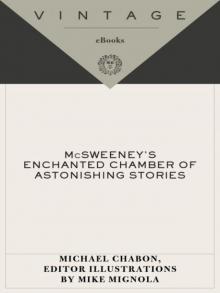 McSweeney's Enchanted Chamber of Astonishing Stories
McSweeney's Enchanted Chamber of Astonishing Stories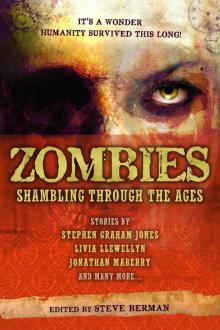 Zombies: Shambling Through the Ages
Zombies: Shambling Through the Ages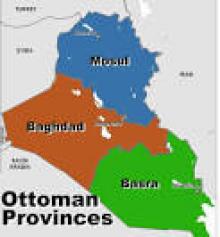 Baghdad Without a Map
Baghdad Without a Map Banshee Cries (the walker papers)
Banshee Cries (the walker papers)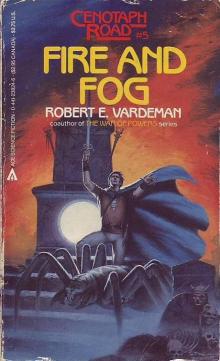 Fire and Fog cr-5
Fire and Fog cr-5 The Twelve Hot Days of Christmas
The Twelve Hot Days of Christmas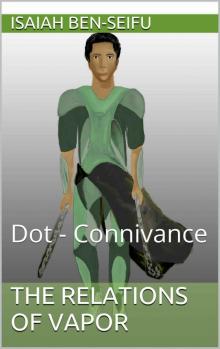 The Relations of Vapor: Dot - Connivance
The Relations of Vapor: Dot - Connivance![Harris, Daisy - Mere Temptation [Ocean Shifters 1] (Siren Publishing Classic) Read online](http://i1.bookreadfree.com/i2/04/11/harris_daisy_-_mere_temptation_ocean_shifters_1_siren_publishing_classic_preview.jpg) Harris, Daisy - Mere Temptation [Ocean Shifters 1] (Siren Publishing Classic)
Harris, Daisy - Mere Temptation [Ocean Shifters 1] (Siren Publishing Classic)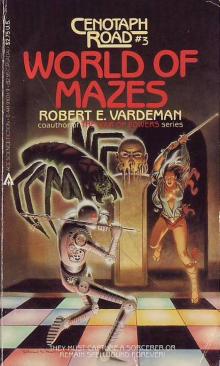 World of Mazes cr-3
World of Mazes cr-3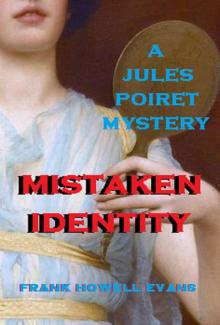 Mistaken Identity (A Jules Poiret Mystery Book 26)
Mistaken Identity (A Jules Poiret Mystery Book 26)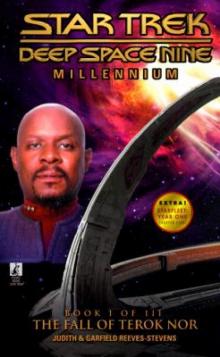 Star Trek - DS9 - Fall of Terok Nor
Star Trek - DS9 - Fall of Terok Nor Not Like I'm Jealous or Anything: The Jealousy Book (Ruby Oliver)
Not Like I'm Jealous or Anything: The Jealousy Book (Ruby Oliver) Skaterboy by J. M. Snyder
Skaterboy by J. M. Snyder The Sorcerer_s Skull cr-2
The Sorcerer_s Skull cr-2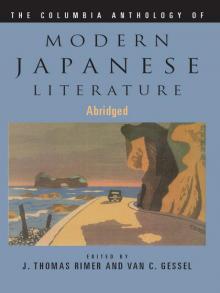 The Columbia Anthology of Modern Japanese Literature (Modern Asian Literature Series)
The Columbia Anthology of Modern Japanese Literature (Modern Asian Literature Series)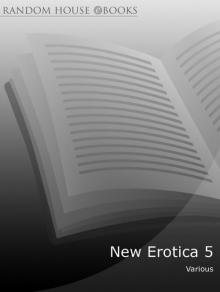 New Erotica 5
New Erotica 5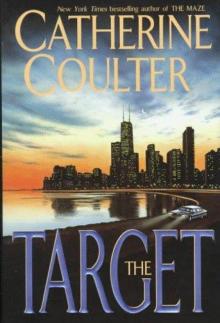 Catherine Coulter - FBI 3 The Target
Catherine Coulter - FBI 3 The Target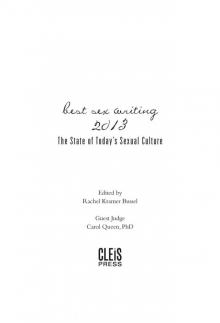 Best Sex Writing 2013: The State of Today's Sexual Culture
Best Sex Writing 2013: The State of Today's Sexual Culture Factoring Humanity
Factoring Humanity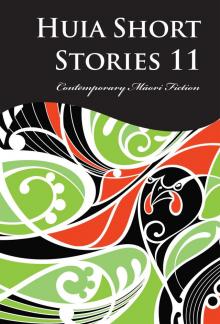 Huia Short Stories 11
Huia Short Stories 11 Call of the Wilds
Call of the Wilds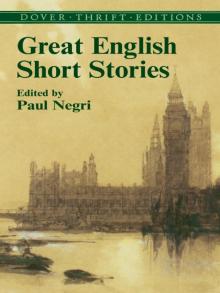 Great English Short Stories (Dover Thrift Editions)
Great English Short Stories (Dover Thrift Editions)![Ramagos, Tonya - Logan's Lessons [Sunset Cowboys 2] (Siren Publishing Classic) Read online](http://i1.bookreadfree.com/i2/04/10/ramagos_tonya_-_logans_lessons_sunset_cowboys_2_siren_publishing_classic_preview.jpg) Ramagos, Tonya - Logan's Lessons [Sunset Cowboys 2] (Siren Publishing Classic)
Ramagos, Tonya - Logan's Lessons [Sunset Cowboys 2] (Siren Publishing Classic)![Morgan, Nicole - Sweet Redemption [Sweet Awakenings 1] (Siren Publishing Allure) Read online](http://i1.bookreadfree.com/i2/04/10/morgan_nicole_-_sweet_redemption_sweet_awakenings_1_siren_publishing_allure_preview.jpg) Morgan, Nicole - Sweet Redemption [Sweet Awakenings 1] (Siren Publishing Allure)
Morgan, Nicole - Sweet Redemption [Sweet Awakenings 1] (Siren Publishing Allure)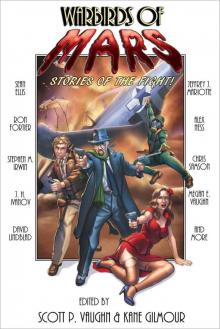 Warbirds of Mars: Stories of the Fight!
Warbirds of Mars: Stories of the Fight!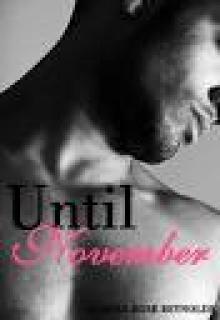 Original Version of Edited Godwin Stories(lit)
Original Version of Edited Godwin Stories(lit) Where The Hell is Boulevard?
Where The Hell is Boulevard?![Chemical [se]X Read online](http://i1.bookreadfree.com/i2/04/13/chemical_sex_preview.jpg) Chemical [se]X
Chemical [se]X Allison Brennan - See No Evil
Allison Brennan - See No Evil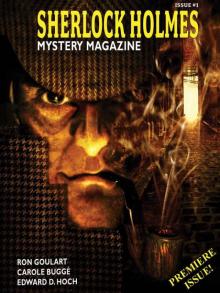 Sherlock Holmes Mystery Magazine #1
Sherlock Holmes Mystery Magazine #1